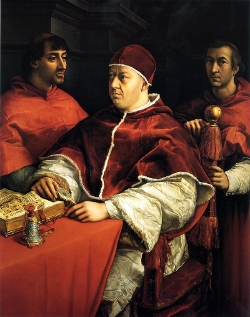1. Personalities tend to be more popular than institutions, so we should be skeptical about claims that the popularity of a given pope will translate into a “revived” church.
2. Francis’s appeal is based largely on his anti-institutional image—his willingness to disregard rules and call out entrenched interests—and so his popularity is especially unlikely to translate into increased attachment to the church.
3. Celebrity is fleeting. For all his current popularity, Francis is perhaps no more popular than John Paul II was during his first visit to the United States....
4. The media love affair with Francis, just like that with John Paul II, will come to an end.
5. It will end in part because he is Catholic and in part because Francis has a penchant for upsetting particular groups—not just conservatives but transgender people, Chileans, etc.
5. When it does, the people most attached to Catholic doctrines and institutions will be the ones most attached to the man. (emphasis added)
 I would have changed the last word of #5 above from "man" to "office." Why? Because when Catholics used to kiss a bishop's ring, it was not in the first place from affection for the man, but from respect for the delegated authority from Christ symbolized by his office. As a canon lawyer friend of mine once pointed out, St. Thomas More accepted imprisonment in the Tower of London and eventual decapitation rather than submit to Henry VIII as "Head of the Church in England," because of his (More's) loyalty to Christ, His Church, and to the office of His Vicar in Rome; but it would have been hard to say it was from personal attraction to the person of Pope Clement VII, who could hardly have been described as a winsome man.
I would have changed the last word of #5 above from "man" to "office." Why? Because when Catholics used to kiss a bishop's ring, it was not in the first place from affection for the man, but from respect for the delegated authority from Christ symbolized by his office. As a canon lawyer friend of mine once pointed out, St. Thomas More accepted imprisonment in the Tower of London and eventual decapitation rather than submit to Henry VIII as "Head of the Church in England," because of his (More's) loyalty to Christ, His Church, and to the office of His Vicar in Rome; but it would have been hard to say it was from personal attraction to the person of Pope Clement VII, who could hardly have been described as a winsome man.
[Hat tip to JM]

No comments:
Post a Comment